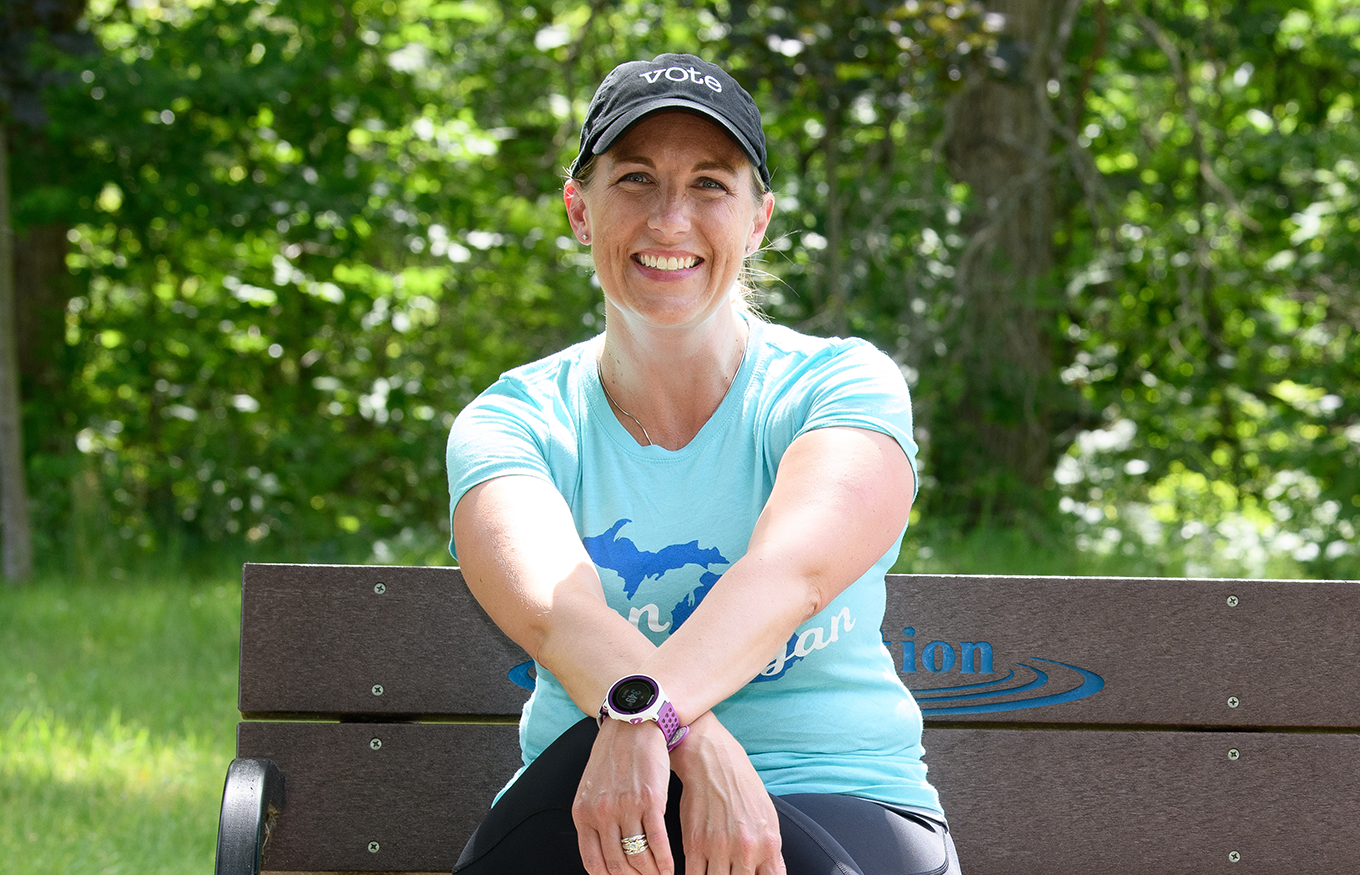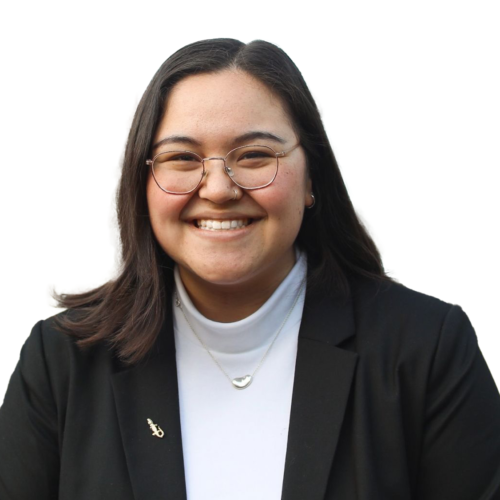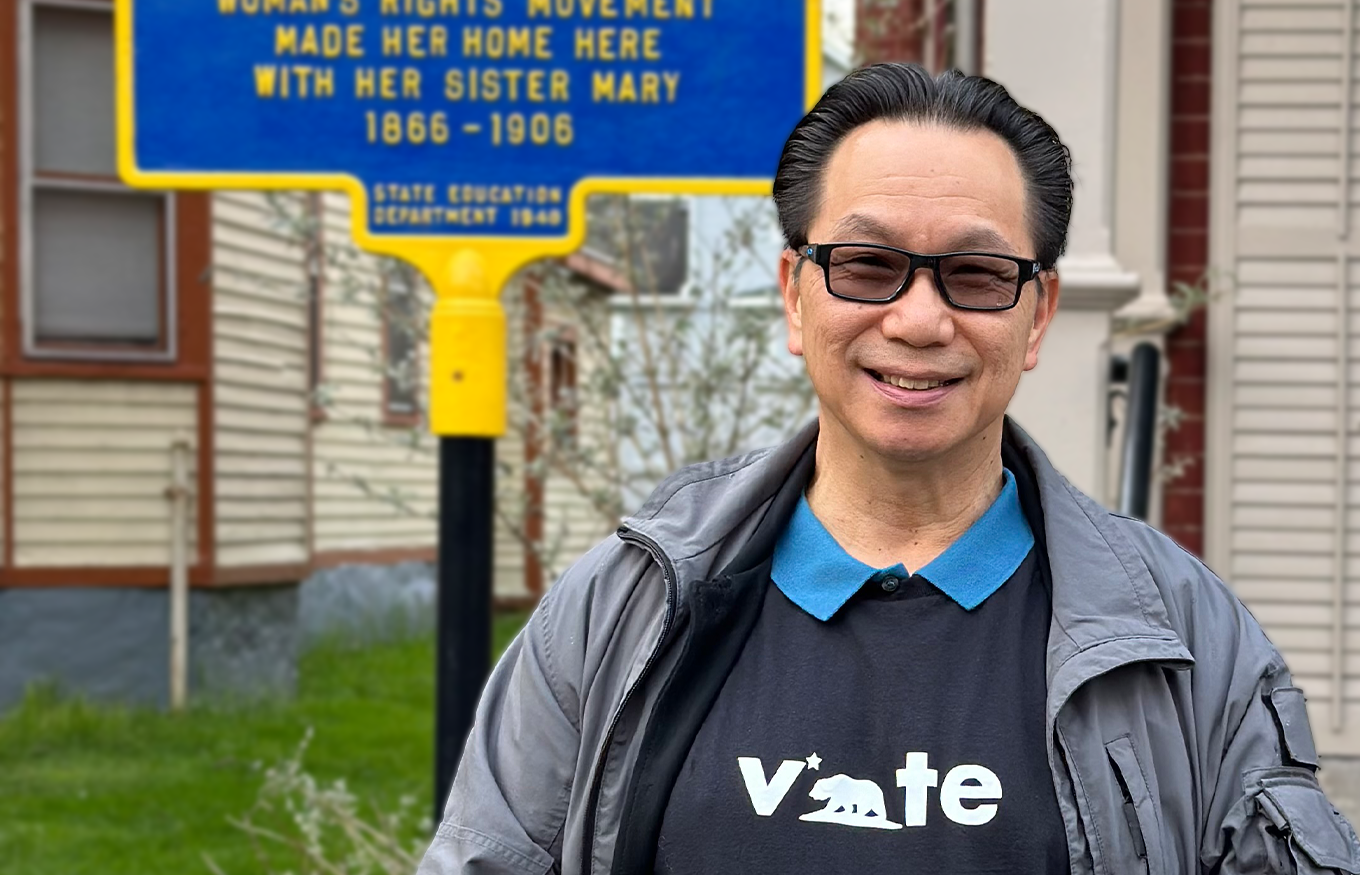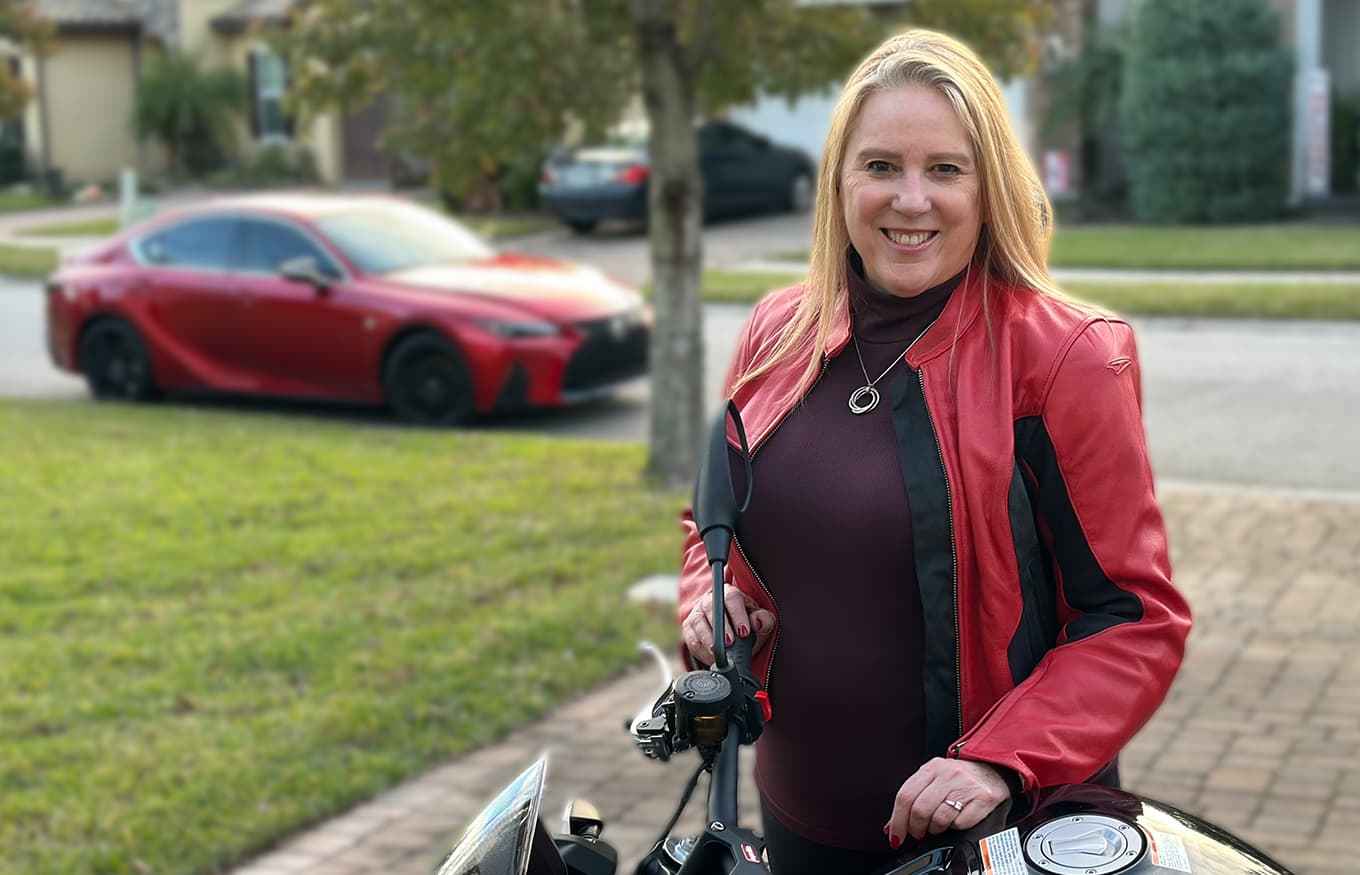Editor’s note: More than 10,000 officials across the country run U.S. elections. This interview is part of a series published each month that highlights the election heroes who are the faces of democracy.
Since 2013, Barb Byrum, a registered Democrat, has served as the clerk of Ingham County, Michigan, which is one of the most populous counties in the state and which is home to Michigan’s capital city of Lansing as well as Michigan State University, Byrum’s alma mater.
An Ingham County native, Byrum is a former hardware store owner and mother of two who enjoys reading, running, and scuba diving. Before being elected as county clerk, Byrum served three terms in Michigan’s state legislature, where her experiences included serving as the ranking Democrat on the redistricting and elections committee in the Michigan House of Representatives.
During her time as county clerk, Byrum has served on the security task force of the National Association of Election Officials, also known as the Election Center. She has additionally worked to strengthen and secure elections in Michigan by serving on the state’s Election Security Advisory Commission.
Since 2022, she has been part of Issue One’s Faces of Democracy campaign advocating for protections for election workers and for regular, predictable, and sufficient federal funding of elections.
This interview has been edited for length and clarity.
Issue One: What was your first experience with election administration? How did you end up in this profession?
Barb Byrum: My very first experience was probably my mom taking me to a polling location when she exercised her right to vote many, many, moons ago. My mom held public office for most of my life — and continues to — so that was my intro to politics and also elections.
I did not grow up wanting to get involved in elections. I grew up thinking I would never run for political office, but that didn’t work out.
I ran for office and served six years in the Michigan House of Representatives. During my last two years, I served as the ranking Democrat for redistricting and election issues. I was approached to run for county clerk, and so I ran. That was in 2012. I took office in 2013.
Issue One: Approximately how many voters are on the rolls in your jurisdiction? And what are some of the main challenges of a jurisdiction of that size?
Barb Byrum: I have 210,000 voters generally in Ingham County. I actually have multiple jurisdictions within the county — 21 jurisdictions to be exact, some of which are large and some of which are very small.
Ingham County is home to Michigan State University. East Lansing is where most of the students reside, so that’s a large jurisdiction. In East Lansing, the local clerk recently resigned. She was starting to feel the stressors of serving as an election administrator, having served in that role for five years.
Then I have small jurisdictions, places with populations well under 10,000, like where I live in Onondaga Township, where it’s one precinct. They do not have internet access. I often have to send a hotspot so they can download the electronic poll book that lists their voters.
A challenge that I face is that many of the local city and township clerks are not full-time. Many of them signed up for a part-time job to take the minutes for meetings, and then realized they also need to run elections. It is difficult for some of them, having to run an election all day on Election Day when they are a teacher or a paraprofessional at a school. They have to take a vacation day. And now that Michigan passed Proposal 2 in 2022, local clerks have a requirement to have a minimum of nine days of early voting. I think we’re going to see more clerks leave because they just can’t figure out how they are going to do that and keep their full-time jobs.
Issue One: There has been a high level of turnover in clerks in Michigan in recent years, like in many other places. What impact does that have on elections?
Barb Byrum: Every time a clerk leaves, they’re taking with them decades of knowledge. Most of the clerks have been clerks for quite some time. Some are just ready to retire. But some of them are leaving because they’re done with the stress and the attacks.
Issue One: A lot of people are surprised to learn that the federal government does not routinely fund election administration. Why do you think the federal government should regularly fund elections?
Barb Byrum: There needs to be a continuous funding stream, not just a one-time funding stream. Election equipment — the computers that run elections — are outdated the day they are purchased. So it needs to be a continuous funding stream for investments in election administration, whether that’s technology, training, or educational programs for our clerks or for our voters. An engaged public is a stronger democracy. It is high time that we invest in our critical elections infrastructure and stop throwing unfunded mandates onto our clerks.
Issue One: And why specifically should the federal government provide continuous streams?
Barb Byrum: It is incumbent upon the federal government to ensure that the right to vote is maintained and adequately funded. Federal candidates are on the ballot at least twice every two years. Members of Congress are on the ballot at least every two years. The president, every four. So at a minimum, Congress should be funding those federal elections that we run. It’s the right thing to do. People sacrificed so that people could have their right to vote, and it’s only prudent that the feds pay their fair share.
Issue One: Where does funding for elections in your jurisdiction primarily come from?
Barb Byrum: The county board of commissioners and the county budget.
And in many jurisdictions in Michigan, the officials who approve the budgets — the county board of commissioners, the township trustees, the supervisor, or even the city council — don’t invest in election administration to the level in which it needs to be invested in. Neither does the state.
The state legislature does not appropriate necessary funding for the secretary of state or for the local officials that conduct the elections. It would cost several thousand dollars per precinct, and I have over a hundred precincts in my county, and I’m not the largest county by any means. Election administration was deemed critical infrastructure in 2017, but you wouldn’t know it based on the funding.
Right now, the state only reimburses for presidential primaries — and they are not known for reimbursing quickly either. They currently don’t reimburse for my salary or my staff’s salary. They’ll only reimburse for the special hourly workers that have to be brought in.
As the costs of elections continue to rise, we’re not always able to invest in the new election technology that is being requested by the clerks.
Issue One: A lot of jurisdictions have limited funding for elections. What tips or tricks of the trade have you utilized to get the most bang for the buck in your area?
Barb Byrum: One thing that I’ve found to be helpful, and it took a while to get there, was to have the politics right with my board. When I took office, I did not have the support of the board of commissioners. Our policies require me to have board approval before I spend or contract. By having their support, I have seen some funding for projects that I’ve wanted to do — such as mailings to voters to encourage them to be added to the permanent absentee ballot application list or purchasing new election equipment.
Issue One: If you had additional funding, how do you think you would spend it?
Barb Byrum: I’d probably be more actively encouraging my locals to contract with me to offer voting centers for early voting. I would have the necessary equipment for back up at early voting sites. I would be able to invest in more technology for election administration and the programming to make it a little bit more seamless. And I’d be able to do more “get out the vote” and voter education work.
Issue One: What are some of the main challenges that areas without enough financial resources face in terms of election administration?
Barb Byrum: Some of the challenges in the more rural areas are that they don’t have resources. In some of those places, there is no internet access. They have to go an hour away to get some type of internet access. For me, in my area, they go to McDonalds to download the electronic poll book on McDonalds’ wifi. There are a number of cities and townships in Michigan that do not have a dedicated clerk’s office or municipal building, and many of them need to get creative to find polling locations. Some polling locations are literally a local clerk’s home.
Issue One: How do you work to embody the principle of transparency in election administration?
Barb Byrum: I disseminate information directly to the public. I’m pretty active on social media. When people have election questions, I try to respond. It’s important to engage people and answer questions.
I host “Elections 101” trainings, opening them up to anyone who wants to learn more about elections because I think it’s incumbent upon me and other election administrators to try to locate the new election administrators, the ones who are going to replace us. And we need to foster those individuals.
I’ll talk about election administration to anyone, whether they really want to talk about it or not.
Issue One: Outside of being passionate about safe and secure elections, what are some of your hobbies? Or what is a fun fact that people might not know about you?
Barb Byrum: I run a lot. I really enjoy reading. And I am a scuba diver. The scuba diving culture in Michigan is not strong, but we have great lakes. I learned to scuba dive in a quarry where I couldn’t even see my hand in front of my face. I really enjoy scuba diving in the Caribbean.
Issue One: What is your favorite book?
Barb Byrum: I prefer memoirs more than anything. “Glass Castle” used to be my absolute favorite. It’s about a young lady who overcame many, many obstacles in her life. Back when I was in the legislature, I used to gift that book to a lot of people.
I like children’s books too. “I Dissent,” “Grace Goes to Washington,” “Grace for President,” “She Persisted,” and “She Persisted Around the World” are all on my bookshelf.
Issue One: What historical figure would you have liked to have had an opportunity to meet?
Barb Byrum: It would have been nice to meet Justice Ruth Bader Ginsburg. She was so tough, but yet poised. I don’t have that quality [laughs].
Issue One: If you could speak to one common misconception of election administration, what would you want to clear up, and what would you say?
Barb Byrum: Election administration is not a partisan issue. It never has been. Unfortunately partisan politics often is thrust upon election administrators, but we are your neighbors. We are your friends. We’re behind you at the pick-up line at school. We see you at the grocery store. We are trusted, and we should be trusted. Some of us are partisanly elected, some of us are not, but our offices are absolutely nonpartisan. We’re people too, and when people attack election administrators on social media, we see that and we feel that. I miss the days of civility.
It seems as though people have been empowered to be mean-spirited and hateful. They should remember that we are supposed to treat everyone as we want to be treated. That’s just a basic that I was raised with.
And I would love for people to understand that there is no grand conspiracy. Voters vote. Election administrators count the votes. That’s what we do. We report it. It’s audited. There are opportunities for recounts. There are so many checks and balances along the way. There is no grand conspiracy. There are eyes on the entire process.
It’s a multiple-month event to prepare for the election, certify the election, and then audit the election. There are so many checks and balances, Democrats and Republicans working together all along the way. That’s why I can sit here and tell you that I know our elections are safe and secure.
Note: This piece was cross-published with The Fulcrum.






